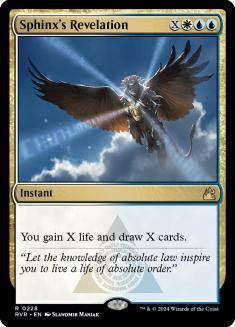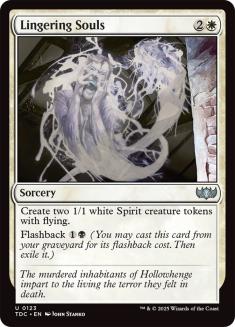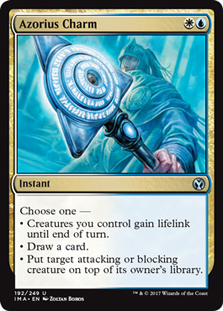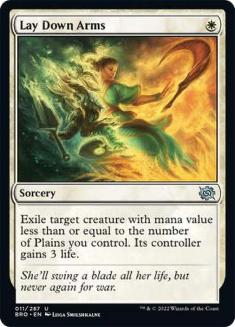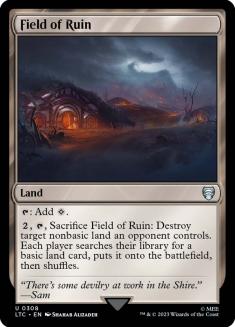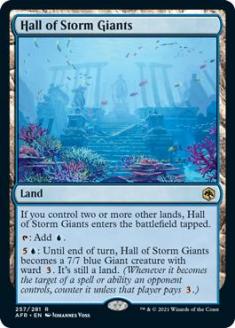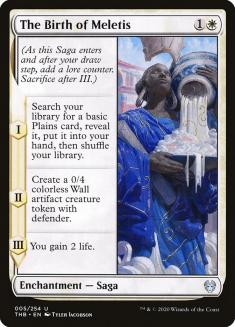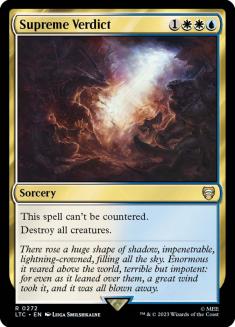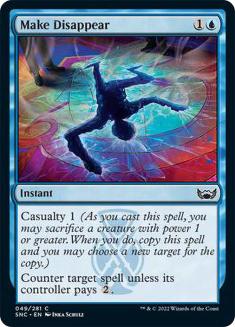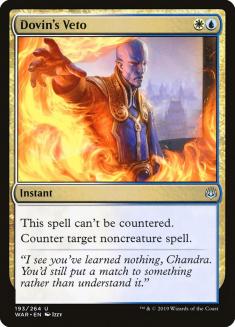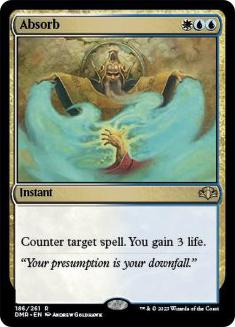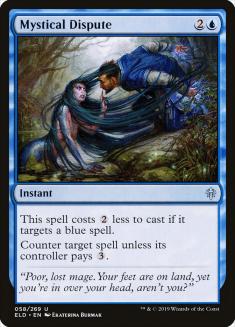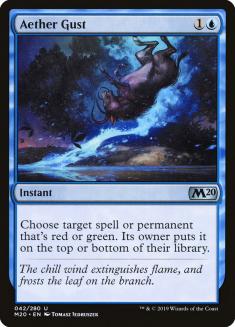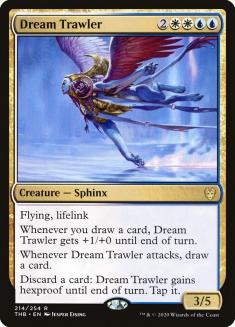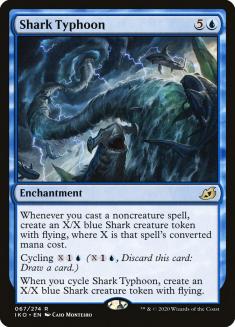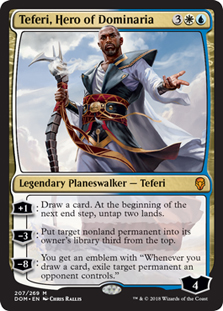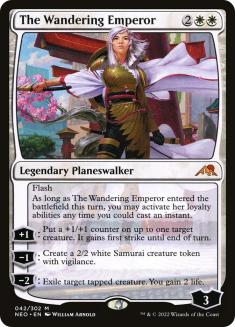Wizard of the Coast (WotC) made the correct decision to align the format of the Regional Championship Qualifiers (RCQs) with the Regional Championship (RC) they feed. This hyper-focuses the community on Pioneer for this round, while future RCs will bring excitement to other formats. I have been an advocate of this for a long time, especially in my quest to rejuvenate Standard as the household format once again.
I know Commander is here to stay; however, there is plenty of room for others to play. Standard has been a pillar of competitive Magic since I started playing the game and aligning feeder tournaments to the format they qualify for is smart business. In theory, this should increase the sales of traditional Magic sets, help third party distributors, and expose the player base to the excitement of a healthy, rotating format once again. Modern and Pioneer have successfully held their own, but there is something special about rotation that made Standard the format of choice for many years.
Pioneer is the format we are all preparing for – a task that is easier when the format does not change. Players can develop their favorite deck to hit all events within any given season, allowing them to build skill through repetition and gradual improvement. Much of my success was based on this, having the ability to swap out some underperforming cards and learning from recent mistakes. Of the five consecutive Invitational Top 8s, four of them were with Esper Control in Standard and Esper Stoneblade in Legacy. When formats are uniform, it opens the door for this type of success.
I love Pioneer and it is not just because Azorius Control is one of the best decks. This format has a healthy mix of aggro, midrange, control, combo, and ramp, all of which are highly competitive. I continue to be impressed by what I see emerge in competitive play. With the power creep in full effect, it is natural that formats closest to Standard see an archetype boost. For control fans, we are just looking to improve the disruption, mana, and win conditions that we already have.
The Achilles’ heel of Azorius Control has been the disruption, both counterspells and removal. The archetype somehow remained competitive on the heels of Azorius Charm when the format began, which is a miracle in itself. That strategy started to fall apart as the format hit a power level boon and Azorius Control was forced to adapt to remain competitive. The removal got a bit better, with the release of March of Otherworldly Light and Portable Hole. We began to see Azorius Control take out aggressive decks that it normally had no chance against with these new weapons. With today’s version, we have the best removal spell that control has seen in the Pioneer format.
Lay Down Arms revolutionized Azorius Control in Pioneer, at the expense of its mana base. It has a strict Plains requirement, putting constraints on the number of utility lands I would like to run. This price tag is worth it since it can handle nearly any creature in the format with ease. It feels odd to have a Swords to Plowshare effect in Pioneer, especially against the best decks of the format. Whether it is the fastest Mono-Red Aggro or big-mana Nykthos Ramp deck, it takes out threats at peak efficiency. The mana base for Lay Down Arms does not break the gameplay of Azorius Control, making me confident in this list for the upcoming RCQ season.
Creatures (1)
Planeswalkers (6)
Lands (26)
Spells (27)

The six basic Plains start the mana base off, finishing with a pile of dual lands that count toward that total. The lands enter the battlefield untapped when needed most of the time, since control decks can afford some slow turns. On Turn 1, it is unlikely a Lay Down Arms is needed in most matchups, allowing a safe land drop even on the draw. Even on Turn 3, most disruption costs two, which allows for another tapped land to be played. Any player that has played control in a format without fetchlands understands this principle well.
I have penciled in a single Otawara, Soaring City, Castle Vantress, Castle Ardenvale, Hall of Storm Giants, and Field of Ruin to accompany the lands without abilities. This reduced number of utility lands does give me some angst, with the exception of Field of Ruin. There are players running three copies of this since it does eventually fetch up a Plains for the Lay Down Arms count. This action often does not happen this smoothly and Field of Ruin has led to my demise on multiple occasions. It is a horrendous draw with Absorb and if the colored mana is immediately needed. It essentially requires an entire turn’s worth of resources to use in the early-game, making it a liability. For those that play three, I recommend going to two or one.
To complement the mana base, The Birth of Meletis makes a return to Azorius Control. I love this card as the twenty-seventh land, because it produces tremendous value against Rakdos Midrange and all the aggro decks. I have even added a second copy in the sideboard, which I usually bring in over one of the other lands in the deck. There have been cards arguably stronger made with similar effects; however, this only costs two, producers a solid blocker, and gains life, in addition to getting a Plains.
To assist Lay Down Arms, this version of Azorius Control has Fateful Absence, Supreme Verdict, March of Otherworldly Light, and Farewell. These removal spells are fairly standard in Pioneer, but the number of each varies quite a bit. Playing only three sweepers makes me nervous, but I think the increased power of disruption makes up for that gamble. When the removal was worse, every battlefield required an immediate Supreme Verdict to keep us alive. With Lay Down Arms and March of Otherworldly Light handling business in the early-game, there is a reduced need to sweep the board on Turn 4 against many decks. Fateful Absence is the emergency one-of that none of us like to play, giving us a cheap out against a resolved planeswalker.
The blue disruption has improved slightly since the last Pioneer run. Make Disappear is a surprising addition to competitive play. It is a staple in blue decks in Standard and has now made its way to Azorius Control in Pioneer. It is the closest we are getting to Mana Leak, and it can often take out a spell unless the opponent pays four mana. There are a bunch of token making abilities in this deck, through Castle Ardenvale, Shark Typhoon, The Birth of Meletis, and planeswalkers. With that mode unlocked, it serves as a powerful early-game disruption spell, which maintains its usefulness in the mid and late-game.
In addition to Make Disappear, Censor, Dovin’s Veto, and Absorb work in the main deck to prevent spells from resolving. Many of you know my love for Censor, a card with higher upside than Jwari Disruption. Jwari Disruption creates yet another land that enters the battlefield untapped, while Censor can increase the percentage to draw a land early and cycle for a potential spell late. One option is a land that we continuously hold when flooded, hoping the opponent taps out for a spell. Censor can be held for a couple turns if the rest of our hand is strong or cycled for a potential improvement. Both cards can be played, but Censor is the better overall option.
Dovin’s Veto and Absorb are the traditional counterspells of Azorius Control that can get the job done. It is unfortunate that three-mana counterspells are mandatory for control’s success but Absorb is a tolerable option. Gaining life is great and the three-mana slot is mostly vacant. Dovin’s Veto is a glorified Negate against most matchups; however, it is efficient and rarely a dead card. To provide support from the sideboard, I never leave home without Mystical Dispute, Aether Gust, and additional Dovin’s Veto for the blue mirrors.
The win conditions for Azorius Control continue to change as the deck strength increases. I am playing one copy of Dream Trawler, in addition to the typical planeswalkers and Shark Typhoons. Dream Trawler is an insta-kill against many decks in Pioneer, which is why I have typically run two copies in the main deck. Shark Typhoon has been significantly overperforming lately, which is why I swapped a Dream Trawler for one additional copy. I can see an aggro metagame where both Dream Trawlers earn a main deck spot, but for now, I like this setup.
Shark Typhoon continues to destroy opponents in Pioneer, especially in the late-game where the enchantment mode is utilized. I cycle the first one liberally, but make sure to always have a copy to hard cast when the moment is right. My gameplay often involves a one-for-one battle, up until Turn 6 where Shark Typhoon arrives. Once it is in play, it must immediately be removed by the opponent, or the game is over. The value it produces is obscene and traditional decks have no chance to catch up. Cycling it for a giant Shark feels great, but producing one with every non-creature spell feels better.
The planeswalkers continue to be the best cards in the deck. Everyone is fully aware of the strength of The Wandering Emperor and Teferi, Hero of Dominaria. They make Azorius Control great on their own, acting as disruption, a win condition, and card advantage. Memory Deluge is still the main draw engine of the deck, but these two planeswalkers are what makes opponents run out of resources. Narset, Parter of Veils and Elspeth, Sun’s Champion join the team from the sideboard, to pressure any slow deck into submission. With this configuration and these weapons, I am confident that Azorius Control can defeat the best decks in the format.


